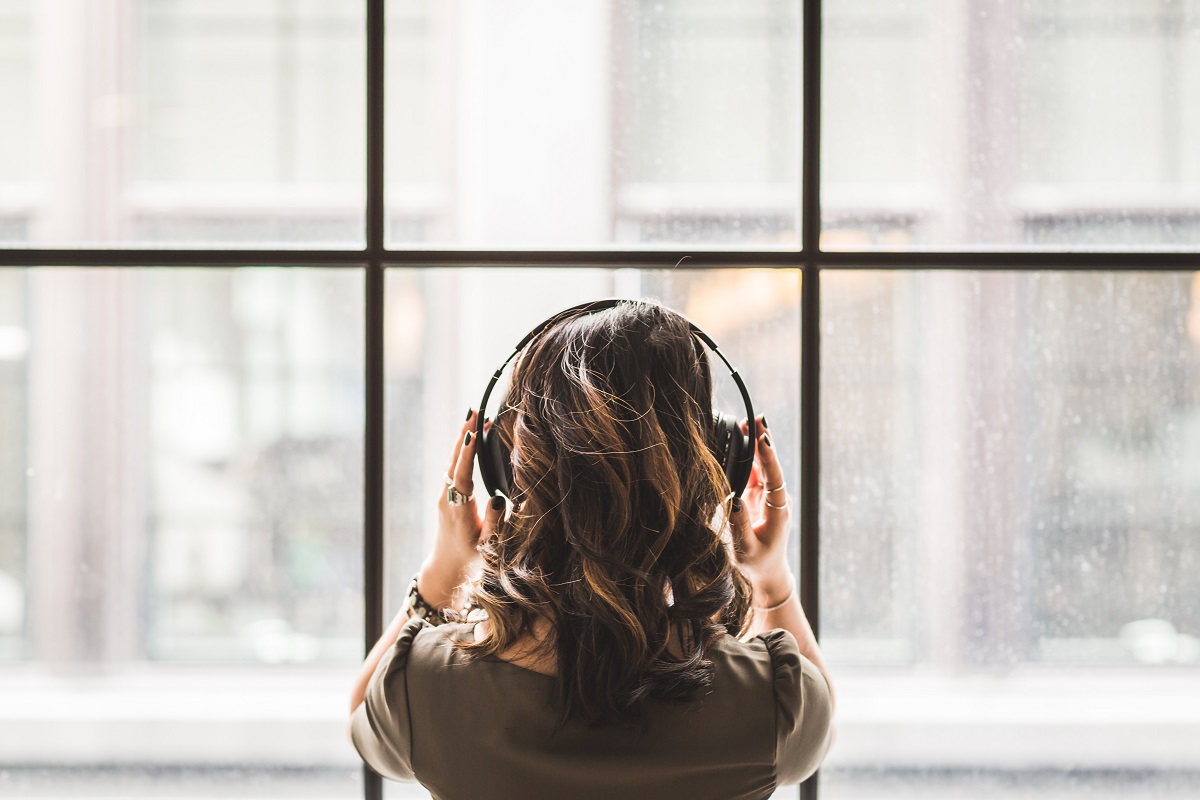students, workers & explorers going to New Zealand & travelling from New Zealand.

Answer our simple questions to get started


InsurancesafeNZ provides three different travel insurance policy categories: Studentsafe, Workersafe and Explorersafe. This means that if you’re travelling to New Zealand, travelling within New Zealand or temporarily leaving New Zealand, we have something to offer you. Use the Policy Finder to narrow your policy search and get a quote. Our website is also packed with great information on how to keep safe, how to make the most of your time abroad and how to understand your travel insurance policy better. If you need further assistance contact one of our friendly staff on our toll-free number 0800 486 004 (within NZ) or +64 9 488 1638 (outside of NZ).
Studying in New Zealand is an adventure of a lifetime, which is why a range of unexpected bumps and accidents are covered under Studentsafe policies.
But when it comes to certain medical conditions, you may not be automatically covered. That’s why it’s important to disclose any medical conditions you want cover for.
The term “Pre-existing Medical Conditions” is commonly used when applying for insurance. This refers to your medical history and the full definition can be found on
Being in good health is key to embarking on an exciting study adventure in New Zealand.
Anyone planning to study in New Zealand for more than three months is required to apply for a student visa.
When applying for a new or to renew a visa, you may need to provide New Zealand Immigration with medical information to demonstrate an acceptable level of health.
Studentsafe policies do not cover medical costs for your visa application.
Studentsafe policies are desig
Your wellbeing is important which is why Studentsafe provides cover for medical and related expenses.
But before you make an appointment for check-ups related to your health, it’s important to understand what is and isn’t covered under your policy.
Studentsafe does not provide cover for certain medical tests listed as Exclusions under Section 1: Medical and Related Expenses as set out below:
9. Health screening, medical and dentals reviews or vaccinations.
&
Staying healthy plays a vital role in making the most of your study adventure. If you have been prescribed medication and are looking to make a claim, it’s important to understand what is and isn’t covered under your policy.
Just because a certain medication has been prescribed by your doctor, it does not mean that it is automatically covered.
Studentsafe does not provide cover for certain medical tests listed as Exclusions u
Keeping mentally well is important to make the most of your study adventure.
While studying away from home is an exciting life experience, there are times you may feel overwhelmed or experience loneliness, stress, anxiety and depression.
During these challenging times, it’s important to recognise the pressures you may be under, whether it’s adjusting to a new environment or the added load of assignments and exams.
If you need professional help, you can feel assured knowi
If you’re reading this article, you’ve already made a sensible choice. If you’re in a new relationship, or thinking about starting to date, it’s important to think about how you can ensure that you and your partner stay safe when you’re having a little extra ‘fun’.
So read on to learn more about what steps you should be taking to keep safe. The consequences can range from irritating to life-threatening – and that isn’t a gamble anyone should take.
Any new culture will have customs that you will start to learn very quickly as soon as you arrive! To give you a head start on your time in New Zealand, we’ve got a few key bits of information about Kiwi culture – and a whole lot of detail about speaking like a local!
When you’re walking the streets of New Zealand – or even when you’re still at the airport and navigating escalators – it’s good to remember that we drive on the left, not the righ
Unless you’re really into skiing, winter in New Zealand isn’t really the most exciting time of year. It’s not cold enough for there to be pretty snow falling in the cities, but it’s still cold enough that you don’t want to spend time outside unless you have to. Instead of snow, we mostly get rain and wind. It’s certainly not terrible – but it does give you a good excuse to go somewhere sunny if you have the time and budge
Adjusting to a new workplace comes with challenges wherever you are in the world – and if you're in a new country as well as a new workplace, those changes can be even more extreme. New Zealand culture is quite friendly and informal, and this extends to many workplaces. But it can be difficult at times to understand where the limit is – how casual is too casual and what will make you look unprofessional? How formal is too formal and what will make you look too unapproachable?
Some of
Everyone experiences periods of stress in certain situations – perhaps exams are coming up, or you’ve spent a little more than you intended to at dinner and pay day is still a couple of days away. That’s a normal part of life, and most of the time, it goes away fairly quickly when the source of the stress comes and goes. You pass your exam, you check your bank account and ther
A healthy worker is a more productive worker. It seems like an obvious statement to make, but in today’s working world, many workers feel that they have keep pushing and pushing to get results – even at the expense of their health and wellbeing. Workplaces need to be more supportive of their staff to make sure that they feel they are able to take time to get healthy if they are unwell, or to express their concerns if they are overburdened with stress.
Ask any adult what their student years were like, and there will almost always be two things that everyone has in common – lots of fun, and hardly any money! But if you’re new to a city or even a country, it can be hard to know where to begin when it comes to finding social activities that you can do on a student budget.
To help you out, we’ve rounded up some of our top tips for free and cheap things to do in New Zealand’s main student cities and towns to get you started!
Flatting doesn’t have to be expensive. There are a number of ways you can set up a flat on a budget without losing out on quality and the occasional treat. To make sure that you get the best experience possible no matter what your income may be, we’ve brought together a few of our favourite tips and t
When you’re away from your family and community that feeling of homesickness can feel very overwhelming. Making friends and keeping busy are the easiest ways to prevent homesickness – but you need to put the effort in. If you sit at your computer looking over your soci
When you’re planning adventures overseas, there’s so much excitement that it can be easy to forget about the parts of travel that are a little less glamorous. Organising travel insurance may not be as thrilling as planning your routes and researching the major attraction
For many people, the shift from university study to the working world is one of the biggest changes they will ever experience. Life until that point is focused on formal education – sitting in class, doing homework, taking notes… and then all of a sudden, it’s time to step out into
No matter where you go in the world, someone will tell you to keep safe and often there’s a good reason for it. When travelling or moving somewhere new it can be tempting to step outside of your comfort zone and give everything a go. While this is a great attitude it’s important to explore your new surrou
Relocating to a new country for work is hugely exciting. Getting a new job and home and navigating new cultures, practices and languages is an immersive experience and can be incredibly consuming.
An “out with the old, in with the new” approach can be tempting – after all, you’re making a
In general, the younger your children are the easier it will be for them to pick u
For many of us, our pets are part of the family. For expats intending to move overseas with their pet, planning and research before the move is essential. It is crucial to ensure the welfare of your beloved pet during and after transit, and that regulation surrounding the importation and exportation of pets is complied with.
Research animal import regulations for your new country of residence, to determine what conditions must be met for your pet to be allowed en
If you find that you are feeling more and more stressed as exam time gets closer, you shouldn’t feel alone. Almost everyone finds exam season stressful – some people are just better at hiding it than others. Others are also better equipped to deal with the stress of assessments and examinations – and this article has a collection of different ways to do just that. It isn’t going to magically go away, but with some tactics and techniques, you might find it easier to manage.
You may have heard that listening to classical music can help you study better – and it’s true! There’s research from various sources that has agreed that appropriate music can make a real difference. In 2011, researchers from the Université de Caen Normandie in France found that students who listened to particular classical music excerpts in the background of a lecture absorbed more information. Other research has more generally shown that listening to classical music can help make anxiety more manageable. Combine the two, and you get the perfect solution for dealing with your exam stress.

But not all classical music is created equal. This has nothing to do with personal preferences and everything to do with specific rhythm and tonal patterns. So don’t just reach for anything and hope that it will work. Think Brahms and Bach, rather than Rachmaninoff and Rimsky Korsakov. Mozart is always a safe option too. You want something gentle and pleasant, rather than something loud and aggressive – or else you might just stress yourself out more. Here’s a great playlist on Spotify to get you started!
The Pomodoro Technique is a useful method to consider if you find that you struggle to keep studying and concentrating for long periods of time. There is little point in spending hours on end reading a textbook is you keep re-reading the same page because you can’t concentrate properly!
1. Choose what task you will focus on
2. Set your Pomodoro timer for 25 minutes
3. Spend those 25 minutes fully focused on your task
4. When the timer rings, put a tick on a piece of paper
5. If you have fewer than four ticks, take a five minute break, and then repeat from step two
6. If you have already got four ticks, take a longer break – up to 30 minutes – and then start all over again with a fresh set of ticks
What do you do with that five minute break? It’s always good to stand up from your wherever you are sitting and take a quick stroll – perhaps to the kitchen to get a glass of water and a snack, or to the bathroom, or just around the room a couple of times to stretch your legs and get blood flowing.
If you really need to relax and unwind from a particular stressful 25-minute session, try a few gentle desk or office exercises. There are even specific yoga poses designed to be suitable for an office environment – so you can stretch without making people think you’re very odd. There’s a simple article over on Huffington Post with some suggestions.
The best thing is that these days, with an app for everything, you don’t even need to worry about finding a timer or a piece of paper for your tick marks. There are a few different app options to choose from, with the main decision to make whether you want something on your computer or on your phone. Software company Zapier rounded up some of the best Pomodoro apps out there at the moment, so check them out!
Nobody is at their best on an empty stomach. It’s especially hard to do any productive work or revision while you’re hungry. But some foods are better than others when it comes to getting energy to focus on your study.
The best news is, one great option for something that’s both a treat and useful is dark chocolate! Do make sure it’s proper dark chocolate though, not milk chocolate – and definitely not white chocolate. Dark chocolate contains a small amount of caffeine, just like coffee or tea – and it also contains magnesium. With those two substances alone, you will experience greater mental alertness and a heightened and de-stressed mood. Enjoy a few squares of good dark chocolate and know that it’s doing good as well as tasting good!
Nuts are also great brain food. Almonds are particularly excellent, with lots of fibre and vitamin E as well as magnesium and manganese. Brazil nuts, cashews, peanuts and hazelnuts are all great too – and even pecans, pistachios and walnuts are all part of the healthy nut family. A small handful of almonds or cashews will be just the pop of energy you need to get you through your next stretch of study.

When it comes to berries, blueberries are the best of the best. They are full of antioxidants and can help with both concentration and memory – important things when it comes to successful study! The best thing is, of course, they are delicious. Eat them fresh from the market, or even pop some in the freezer and use them as delicious and nutritious ice cubes for a glass of water or juice!
If you’re after a hot drink, coffee will give you a caffeine kick – but green tea is even better. Not only does it contain caffeine, but it also contains a special little thing called L-theanine, which helps keep you mellow and actually releases the caffeine more slowly, allowing you to enjoy its effects for longer. Why not combine the healthy elements of green tea with the goodness of blueberries as mentioned above, and grab a packet of blueberry green tea? Delicious and sure to keep you going.
If you are really struggling with a lot of stress and anxiety, don’t stay silent and suffer alone. If there is a family member or friend that you feel comfortable talking to about the stress that you’re feeling, you will likely feel much better after doing so. Even if they don’t have any new advice, knowing that you are understood and heard can make a huge difference.
Sometimes it can be hard to open up about something that you are struggling with to those you are close to. In those situations, you may find it helpful to find someone else to talk to. Many universities have free counselling services that you can use – they are confidential and managed by professional therapists who are there to help. If that is too difficult, even one phone call can help. Youthline provide a phone counselling service for young people. You can call them on 0800 376 633 or visit www.youthline.co.nz for more information and resources.
As much as it can seem like a good idea to stay up late and spend hours and hours each night studying harder and harder, the reality is that if you aren’t getting enough sleep, all of your hard work may be a waste of time. There is the obvious benefit of getting more energy for the next day – rather than relying on energy drinks to get you going – but there are also important things going on inside your body while you sleep.

Research suggests that while we are asleep our long-term memories get properly stored. So all that information that you are pushing into your brain during the day might just disappear the next day if you don’t get enough sleep for your body to do its important night-time work.
Beyond talking to those around you about the struggle you are having with stress, there are other ways to begin dealing with that stress. One easy, useful – and a bit silly – way to do this is to pop bubble wrap! You know the stuff – the clear plastic bubbled sheets that delicate items will be wrapped in before they are transported. Just grab a sheet and get popping – it’s surprisingly helpful. Whether you go for one bubble at a time, row by row, or scrunch the roll between your fists so it sounds like fireworks popping off, after you’ve made your way through a sheet of the stuff, you’ll feel a little bit lighter. Can’t find any at home? Stationery shops and post offices will all sell it – and there’s even a virtual version online.
Got a room to yourself and some good speakers or headphones? Have a one-person dance party! It’s amazing how refreshed you can feel after having a wild dance around for ten or fifteen minutes. Once you catch your breath, you’ll be ready to hit the books again. Make sure you pick something upbeat and silly for best effects.
Relaxing meditation is an excellent way to get in touch with your calm side and bring you back down from a stress scare. It’s even better if you add it into your daily routine, so that you have the tools at hand when you feel that stress building up inside you.
You can start things off in a simple way, with deep breathing. Breathe in through your nose and feel your chest and stomach fill and rise. Hold it for a few seconds, and then release and repeat. This simple act can calm a fast heart rate and give your brain more oxygen.

When it comes to meditation, there are many resources online that can help, but one of the best options is a good app for your phone. That way, you have it with you wherever you are, and you can just put on your headphones and work through the exercise. Two good options are Headspace and Calm. Both of them do have a higher price than many basic apps, but they also both have a free trial option, so you can try them out and see if they work for you.
Everyone finds exams stressful – you’re not alone. Find the things that work for you and put them in place to handle those pressures – and good luck!